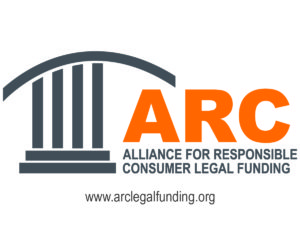
The US Chamber of Commerce’s Institute for Legal Reform (ILR) recently released a White Paper entitled “West Virginia’s Climb; Lawsuit Climate Progress in the Mountain State and the Path Ahead.” In the paper, the Chamber addresses the issue of Consumer Legal Funding, or “Lawsuit Lending” as they like to call it.
The Chamber makes it clear that “Plaintiffs who lose their case are not obligated to repay… ” and go on to say that transactions between funders and plaintiffs constitute “non-recourse funding”.
What is interesting is that the ILR endorses legislation that the Consumer Legal Funding Industry fully supports.
Let me explain: in 2013, Oklahoma State Senator Brian Crain introduced a bill that would have capped the rate funding companies could charge, and classify their products as loans in the State of Oklahoma. Such legislation would have put the Consumer Legal Funding industry out of business in the state.
As the bill made its way through the legislative process, a debate was sparked as to what is the best method for the State of Oklahoma to regulate this industry and protect consumers. What eventually passed, by an overwhelming majority in both the House and Senate and with bi-partisan support, was SB 1016. The Governor signed the bill and the law went into effect on November 1, 2013.
In fact when the Governor of Oklahoma signed the bill on May 29, 2013, the ILR published a press release the very next day commending the passage and signing of the bill. In the release, Harold Kim, VP at ILR, stated: “Governor Fallin, State Senator Brian Crain and State Representative Leslie Osborn deserve credit for curbing lawsuit lending abuses in Oklahoma, and making their state a leader nationally on this front. Hopefully, other states will follow in Oklahoma’s footsteps.”
In addition, the Oklahoma Chamber of Commerce in their 2013 Legislative Wrap Up counted SB 1016 as one of their “Pro-Business Legislation that passed” bills.
We agree; the bill that was passed and signed into law in Oklahoma ensures clear notice and disclosures to the consumer. It ensures that there are no hidden fees or charges. It sets up a regulatory license that companies must follow, and if ignored, severe penalties are incurred.
So let it be known that we, the Alliance for Responsible Consumer Legal Funding, agree with the U.S. Chamber of Commerce’s Institute for Legal Reform. We support the Oklahoma legislation’s standing as a model for West Virginia, and for the rest of the country.
We’re looking forward to working with the ILR on enacting legislation based on Oklahoma’s bill. But given the ILR’s aggressive posturing in relation to our industry, we’re not holding our collective breath.










